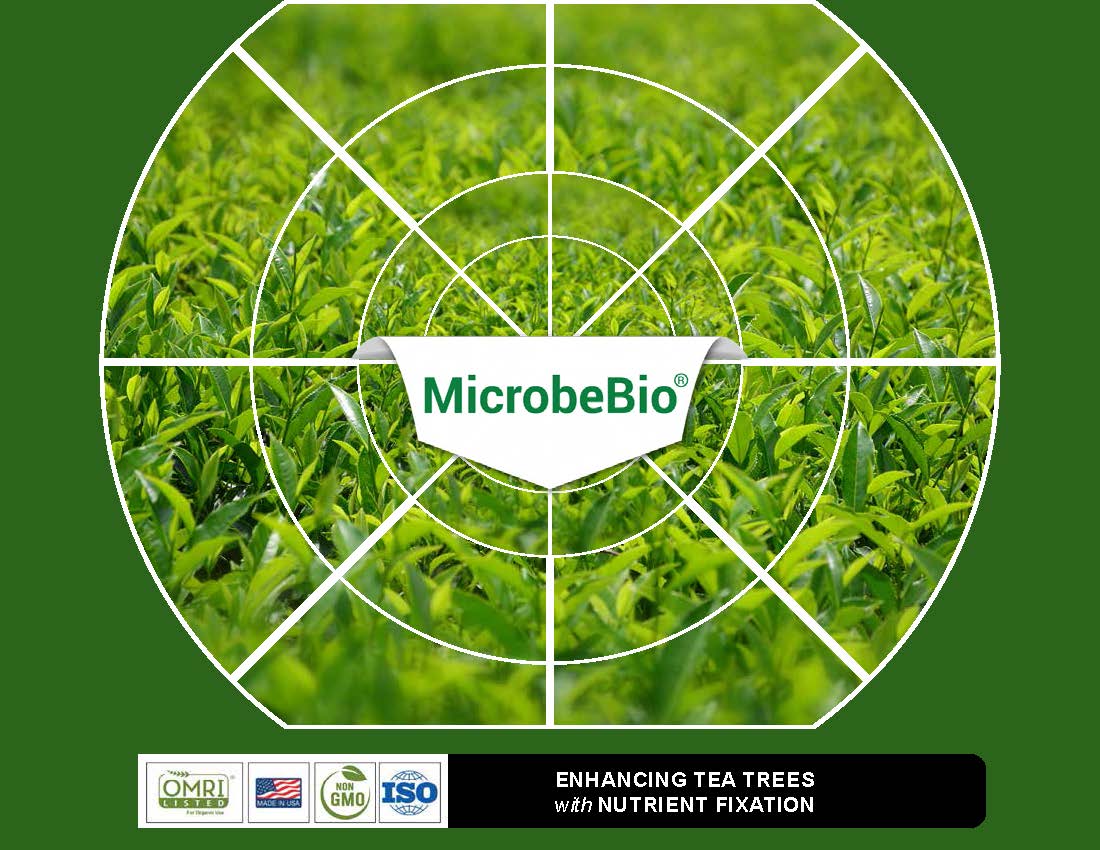
UNLOCKING THE POTENTIAL OF MICROBEBIO® MICROBES
Enhancing Tea Trees with Nutrient Fixation

In the world of tea cultivation, the health and vitality of tea trees are of paramount importance. Achieving the perfect cup of tea starts with nurturing the tea plants themselves. In this article, we’ll dive deep into the extraordinary capabilities of Microbebio® microbes, specifically their ability to fix essential nutrients like sulfur and macronutrients (N, P, K) as well as micronutrients (Mn, B, Fe, Mo, silicate). We’ll explore how each of these nutrients plays a crucial role in enhancing tea tree health and the overall quality of the tea they produce.

Sulfur: The Soil's Silent Hero
Sulfur is a vital nutrient for tea trees. Microbebio® microbes excel at fixing sulfur, ensuring that it is readily available to tea trees. Sulfur contributes to the formation of amino acids and proteins, which are the building blocks of plant cells. This nutrient promotes overall plant growth, robust leaf development, and helps in maintaining the structural integrity of tea leaves.
Macronutrients: N, P, K for Tea Tree Vitality
Nitrogen (N): Nitrogen is a key player in chlorophyll production, the green pigment responsible for photosynthesis. Adequate nitrogen levels enhance photosynthesis efficiency, leading to increased plant growth and higher tea yields.

Phosphorus (P): Phosphorus is essential for energy transfer and storage within tea trees. It aids in root development and flower formation. Microbebio® microbes ensure that tea trees have access to this critical nutrient.
Potassium (K): Potassium is involved in many physiological processes, including water regulation and nutrient transport.
It helps tea trees withstand drought and stress, contributing to their overall health and resilience. Micronutrients:
The Hidden Heroes
Manganese (Mn): Manganese is crucial for chlorophyll production and plays a role in enzyme activation. It ensures that tea leaves remain green and healthy.
Boron (B): Boron is essential for cell division and contributes to the overall quality of tea leaves, including flavor and aroma.
Iron (Fe): Iron is a critical component of chlorophyll and is necessary for photosynthesis. Adequate iron levels result in vibrant and healthy tea plants.
Molybdenum (Mo): Molybdenum is involved in nitrogen metabolism, ensuring that tea trees can efficiently use nitrogen for growth. Silicate: Silicate strengthens tea tree cell walls, providing structural support and making them more resistant to pests and diseases.

Surfactants: Aiding Nutrient Uptake
Surfactants created by Microbebio® microbes facilitate the movement of water and nutrients through the soil and into the tea tree’s root system. This helps tea trees efficiently absorb the essential nutrients we’ve discussed, further enhancing their overall health and vitality.
In conclusion, the role of Microbebio® microbes in fixing and making essential nutrients readily available to tea trees cannot be overstated. These microbes ensure that tea trees receive a balanced diet of macronutrients and micronutrients, leading to vibrant growth, lush foliage, and high-quality tea leaves. The result
is not just healthier tea trees but also tea with enhanced flavor, aroma, and nutritional content. As tea cultivators, it’s essential to recognize the vital role that these nutrients play in shaping the tea we produce and to leverage the power of Microbebio® microbes for the betterment of our tea gardens and the quality of our teas.

